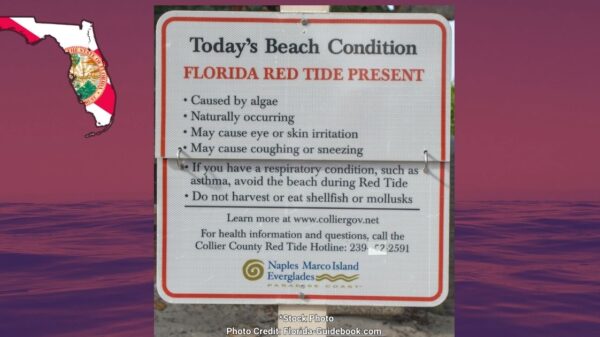Last week, state Agriculture Commissioner Nikki Fried and the Florida Department of Agriculture and Consumer Services (FDACS) provided formal public comment at the Florida Department of Environmental Protection’s public meeting on the draft Underground Injection Control Class I Injection Well System Construction and Testing Permit for the Manatee County Utilities’ Piney Point injection well.
The FDEP meeting follows the breach of the Piney Point gypstack that spilled 250 million gallons of toxic wastewater into Tampa Bay, fueling a red tide harmful algal bloom crisis. If approved, the planned injection well would be used to pump contaminated wastewater from Piney Point into Florida’s aquifer, at a rate of up to 1 million gallons per day. The FDEP meeting attracted dozens of concerned residents, and has drawn a legal challenge from several environmental organizations.
Fried’s formal public comment reads as follows:
Florida’s waters and our environment are the lifeblood of our state, with our state’s tourism industry dependent on their health and well-being. Yet our waters remain under threat from the continued presence of more than two dozen phosphogypsum stacks across our state, including Piney Point which is the topic of discussion today.
It defies all logic for this agency to approve a permit, for the first time ever, to deep well inject heavy metals, radioactive byproducts, and other phosphate mining hazardous waste from Piney Point into the aquifer, risking further environmental contamination as well as potential contamination of the local water supply, following the ecological devastation wrought by the leak and subsequent release of wastewater from this same facility into Tampa Bay earlier this year. This potentially disastrous decision would be in spite of the industry’s own studies showing a high risk of migration, and despite experts telling this agency that there are better environmental alternatives available, like reverse osmosis.
Also at risk when it comes to the deep well injection permit before you today is Florida’s $150 billion agriculture industry that I am honored to represent, which is the state’s second largest economic driver, and is critical to maintaining a safe and secure domestic food supply. In 2012, Manatee County withdrew their deep well injection permit application because producers were concerned about water supply contamination. With one billion tons of hazardous waste already in Florida’s gypsumstacks, and with expansion possibly adding another 500 million tons in the next few decades, the Florida Department of Environmental Protection must guarantee Florida’s crops and food supply won’t be harmed.
Furthermore, the EPA and Piney Point’s own contractor agree that reverse osmosis is a better solution, and experts have told this agency that a better solution to avoid gypsum stack collapses is to truck the hazardous waste to other sites until reverse osmosis capability can be scaled up. This is something DEP should consider before moving forward with this permit that risks harming our environment, our economy, and the residents whose drinking water is sourced from the same aquifer that hazardous wastewater would be injected into.
I ask that you not only deny this deep well injection permit, but also prohibit any expansions or new phosphogypsum stacks until our state can find a way to safely store phosphogypsum without risking the health and safety of Floridians, our environment, and our economy.





















